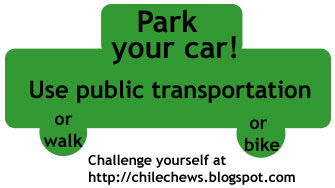Okay, it's San Francisco, so it's not THAT cold out, but you know ... it's coldER than it is at other times of the year, and also I am a big, big pansy, so anything less than 60 degrees = cold in my book.
Now I would like to say that, being a pansy non-withstanding, I have been a Freeze Yer Buns star and have been diligently keeping the thermostat at some obscenely cold temperature.
But I have not.
Instead, my thermostat has been hovering between about 65-70 during the day, and sometimes a bit lower at night.
I have to admit, I haven't been putting as much thought and effort into it as I have in years past. When it gets cold, I turn the heat up a notch. At night, when I go to bed, I'll often turn it down a notch.
The truth is, now that I'm not trying to be SUPER HARD CORE about everything, it's a little hard for me to get up the motivation to freeze my buns off. While there are plenty of people who save tons of money by keeping the thermostat down, we don't save that much money. Living in San Francisco means that even heating the apartment to 70 degrees doesn't take THAT much energy if it's 50 degrees outside. And, oh yeah, I live in an apartment. Heating a smaller space just involves less energy.
As I make these justifications to myself for why I don't WANNA freeze (waaah!) I can't help but think back on this Washington Post article about the rebound effect. The article basically states that though our appliances have become much more energy efficient in the past forty years, Americans still use as much energy as we did in the early 1970s. The idea is this: when we purchase more energy efficient appliances that save us money and energy, we will often end up a) using them more, getting something bigger because it will now "cost the same," or turn around and buy yet another energy sucking device.
Energy efficiency can produce a number of these kinds of unintended consequences. A classic example is captured by Scott Adams, creator of Dilbert, who writes in the Wall Street Journal:
The biggest energy drain in a home is for heating and cooling. We opted to heat our home with a system that runs warm water through all of the floors. The system is energy efficient, I'm told, and wonderfully comfortable, but it's powered by gas. So while our photovoltaic system will someday help during the summer, it will never help much in the cold months when the sun is wimpy and we're burning gas to heat the floors. Worse yet, the heated floors are so pleasant that we probably overuse them compared with a forced air system. That's a classic unintended consequence.
When Adams opts for a more energy efficient system for his heating, he ends up using more heat than he would have if he had gone for a less energy efficient system.
Bringing it back to Freeze Yer Buns, I'm finding that I'm just like any other American. Given a situation where my heating needs are already fairly minimal I choose to keep my apartment heated to a level that I like it.
Which is fine for my buns, but sort of problematic if the goal is to combat climate change by limiting energy use....
What would you do? If you got a super-duper energy efficient heating system that would allow you to keep your thermostat at 70 without using any more energy would you continue to freeze yer buns? Or would you say "eff it" and get those buns nice and toasty?





